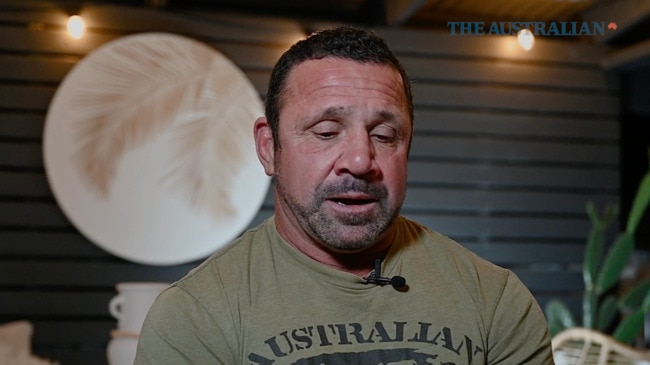‘NRL leaders must ensure that former players no longer suffer in silence’
The ARL Commission will debate its concussions study, after revelations researchers allegedly didn’t warn a legend scans showed he had a brain injury.

The Australian Rugby League Commission will this week debate its controversial research into concussions, after revelations researchers allegedly did not warn rugby league legend Robbie O’Davis that their scans showed he had a brain injury.
The ARLC will meet on Wednesday before the State of Origin in Queensland.
A number of sources confirmed that the NRL concussion study, which did not alert the families of two other retired champions they had been diagnosed with dementia, will be discussed.
NRL concussion consultants Professor Chris Levi and Associate Professor Andrew Gardner, whose work has been funded to the tune of more than $1m by the NRL, promised to deliver “transformative” work on the long-term impact of head injury in the game.
In 2019, Dr Gardner also said the program “will not only allow us to identify problems and immediately refer former players for treatment”.

One high-ranking rugby league club source said the “old boys” and families are hoping for more support services rather than “studies”.
As the game continues to address its concussion issues, The Australian has also learnt the game is working towards limiting contact in training as early as next season, with medical professionals across the code being consulted on the potential change.
As the research controversy dominates NRL powerbroker discussions, Sydney University – which also currently oversees the NRL study – has not launched an investigation into the researchers’ conduct despite the allegations made by the footballers and their families.

The NRL research furore comes as the Senate inquiry into repeated head injury on contact sport is set to deliver its report this Friday.
The inquiry heard multiple submissions from families and sufferers of the long-term effects calling for more support for families and former players at all levels of the game.
The inquiry is considering whether to recommend a compensation scheme for former players.
At the inquiry, the daughter of rugby league legend Steve Folkes, Hayley Folkes-Shaw, called on the NRL to do more to support players who were “struggling”.


Former Bulldogs legend and coach Folkes died suddenly aged 59 in 2018, and was the first Australian rugby league player to be diagnosed with CTE.
“We certainly don’t want to ruin the game,” Ms Folkes-Shaw said.
She said she had been “bombarded” with messages” from people concerned about themselves or loved ones. She said the code needed to step up and “raise awareness” about CTE.
Ms Folkes-Shaw said people “don‘t know where to go … and don’t know what to do”.
“We just want them to feel supported,” she said. “We don’t want anything more than that.”
Ms Folkes-Shaw said if she had known about CTE, she “could have supported (Folkes) through what he was going through”.
Ms Folkes-Shaw was critical of the NRL for not contacting either herself or her brother Dan after they went public after her father’s CTE diagnosis.
Quizzed by independent senator Lidia Thorpe if the NRL was aware of her father’s CTE diagnosis, Ms Folkes-Shaw said: “They would be living under a rock if they weren‘t.”
The Senate inquiry is considering whether to recommend if compensation schemes should be introduced for players affected by the long-term effects of repeated head injury.
Earlier this year the widow of NRL great Paul Green, Amanda Green, backed calls for more support for retired players, including brain scans, and for more education on the brain disease CTE.

“A day doesn’t go by where I don’t wish I knew back then what I now know about CTE,” Mrs Green said in March.
“Paul was such a highly intelligent and clever guy, it breaks my heart to think that he was silently dealing with changes in his brain that neither of us understood.
“We cannot change the past, but we can certainly change the future, and today’s NRL leaders must ensure that former players no longer suffer in silence.”
Mrs Green – whose husband starred at the Cronulla Sharks, was a Rothmans’ medallist and a North Queensland Cowboys premiership coach – donated his brain to the Australian Sports Brain Bank in August.
A post-mortem revealed Green suffered from one of the “most severe forms” of pure chronic traumatic encephalopathy neuropathologist Michael Buckland had seen.
CTE is a brain disease that has been linked to repetitive head knocks. The Senate inquiry into repeated head injury in contact sports is set to release its report on Friday.
The inquiry, which turned the spotlight on the role professional sport has played influencing public debate around the long-term impact of repeated head knocks, was charged with considering the long and short-term support made available to former players.







To join the conversation, please log in. Don't have an account? Register
Join the conversation, you are commenting as Logout